Violin Sheet Music
 "Music is the movement of sound to reach the soul for the education of its virtue." Plato
"Music is the movement of sound to reach the soul for the education of its virtue." Plato
Bach

Johann Sebastian Bach (31 March 1685 – 28 July 1750) was a German composer and organist whose sacred and secular works for choir, orchestra, and solo instruments drew together the strands of the Baroque period and brought it to its ultimate maturity. Although he introduced no new forms, he enriched the prevailing German style with a robust contrapuntal technique, an unrivalled control of harmonic and motivic organisation in composition for diverse musical forces, and the adaptation of rhythms and textures from abroad, particularly Italy and France.
Revered for their intellectual depth and technical and artistic beauty, Bach's works include the Brandenburg concertos; the Goldberg Variations; the English Suites, French Suites, Partitas, and Well-Tempered Clavier; the Mass in B Minor; the St. Matthew Passion; the St. John Passion; The Musical Offering; The Art of Fugue; the Sonatas and Partitas for violin solo; the Cello Suites; more than 200 surviving cantatas; and a similar number of organ works, including the celebrated Toccata and Fugue in D Minor.
While Bach's fame as an organist was great during his lifetime, he was not particularly well-known as a composer. His adherence to Baroque forms and contrapuntal style was considered "old-fashioned" by his contemporaries, especially late in his career when the musical fashion tended towards Rococo and later Classical styles. A revival of interest and performances of his music began early in the 19th century, and he is now widely considered to be one of the greatest composers in the Western tradition.
Revered for their intellectual depth and technical and artistic beauty, Bach's works include the Brandenburg concertos; the Goldberg Variations; the English Suites, French Suites, Partitas, and Well-Tempered Clavier; the Mass in B Minor; the St. Matthew Passion; the St. John Passion; The Musical Offering; The Art of Fugue; the Sonatas and Partitas for violin solo; the Cello Suites; more than 200 surviving cantatas; and a similar number of organ works, including the celebrated Toccata and Fugue in D Minor.
While Bach's fame as an organist was great during his lifetime, he was not particularly well-known as a composer. His adherence to Baroque forms and contrapuntal style was considered "old-fashioned" by his contemporaries, especially late in his career when the musical fashion tended towards Rococo and later Classical styles. A revival of interest and performances of his music began early in the 19th century, and he is now widely considered to be one of the greatest composers in the Western tradition.
Nicolo paganini
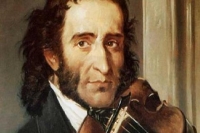
Niccolò Paganini, Italian composer, violin virtuoso guitarist and composer. He is one of the most famous violin virtuosos in music history. He has made important contributions to the violin technique and has given many works in the field of violin, guitar and chamber music.
Zoltan Paulinyi
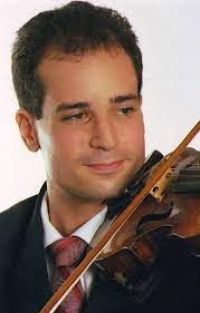
Zoltán Paulínyi Körmendy (Pittsfield, MA, 1977) conhecido pelo nome artístico de Zoltan Paulini, é um violinista, violista (barroco e moderno) e compositor americano-brasileiro. É profissionalmente ativo desde 1995, e utiliza principalmente instrumentos fabricados e restaurados pelo luthier Carlos Martins del Picchia.
Vocaloid

Vocaloid (ボーカロイド, Bōkaroido) is a singing voice synthesizer software product. Its signal processing part was developed through a joint research project led by Kenmochi Hideki at the Pompeu Fabra University in Barcelona, Spain, in 2000 and was not originally intended to be a full commercial project. Backed by the Yamaha Corporation, it developed the software into the commercial product "Vocaloid" that was released in 2004.
Andrew Lloyd Webber

Andrew Lloyd Webber, Baron Lloyd-Webber (born 22 March 1948) is an English composer of musical theatre, the elder son of organist William Lloyd Webber and brother of the cellist Julian Lloyd Webber. Lloyd Webber started composing at the age of six, and published his first piece at the age of nine.
Lloyd Webber has achieved great popular success, with several musicals that have run for more than a decade both in the West End and on Broadway. He has composed 13 musicals, a song cycle, a set of variations, two film scores, and a Latin Requiem Mass. He has also gained a number of honours, including a knighthood in 1992, followed by a peerage from the British Government for services to Music, seven Tony Awards (and 40 nominations), three Grammy Awards (with an additional 60 nominations), an Academy Award (two other nominations), seven Olivier Awards (with 100 nominations), a Golden Globe, and the Kennedy Center Honors in 2006. Several of his songs, notably "The Music of the Night" from The Phantom of the Opera, "I Don't Know How to Love Him" from Jesus Christ Superstar, "Don't Cry for Me, Argentina" from Evita, "Any Dream Will Do" from Joseph and the Amazing Technicolor Dreamcoat and "Memory" from Cats have been widely recorded and were hits outside of their parent musicals. His company, the Really Useful Group, is one of the largest theatre operators in London.
Producers in several parts of the UK have staged productions, including national tours, of Lloyd Webber's musicals under licence from the Really Useful Group. According to britishhitsongwriters.com, he is the one hundredth most successful songwriter in U.K. singles chart history, based on weeks that his compositions have spent on the chart.
Lloyd Webber has achieved great popular success, with several musicals that have run for more than a decade both in the West End and on Broadway. He has composed 13 musicals, a song cycle, a set of variations, two film scores, and a Latin Requiem Mass. He has also gained a number of honours, including a knighthood in 1992, followed by a peerage from the British Government for services to Music, seven Tony Awards (and 40 nominations), three Grammy Awards (with an additional 60 nominations), an Academy Award (two other nominations), seven Olivier Awards (with 100 nominations), a Golden Globe, and the Kennedy Center Honors in 2006. Several of his songs, notably "The Music of the Night" from The Phantom of the Opera, "I Don't Know How to Love Him" from Jesus Christ Superstar, "Don't Cry for Me, Argentina" from Evita, "Any Dream Will Do" from Joseph and the Amazing Technicolor Dreamcoat and "Memory" from Cats have been widely recorded and were hits outside of their parent musicals. His company, the Really Useful Group, is one of the largest theatre operators in London.
Producers in several parts of the UK have staged productions, including national tours, of Lloyd Webber's musicals under licence from the Really Useful Group. According to britishhitsongwriters.com, he is the one hundredth most successful songwriter in U.K. singles chart history, based on weeks that his compositions have spent on the chart.
Traditional

George Gershwin

George Gershwin (September 26, 1898 – July 11, 1937) was an American composer. He wrote most of his vocal and theatrical works in collaboration with his elder brother, lyricist Ira Gershwin. George Gershwin composed songs both for Broadway and for the classical concert hall. He also wrote popular songs with success.
Many of his compositions have been used on television and in numerous films, and many became jazz standards. The jazz singer Ella Fitzgerald recorded many of the Gershwins' songs on her 1959 Gershwin Songbook (arranged by Nelson Riddle). Countless singers and musicians have recorded Gershwin songs, including Fred Astaire, Louis Armstrong, Al Jolson, Bobby Darin, Art Tatum, Bing Crosby, Janis Joplin, John Coltrane, Frank Sinatra, Billie Holiday, Sam Cooke, Miles Davis, Herbie Hancock, Madonna, Judy Garland, Julie Andrews, Barbra Streisand, Marni Nixon, Natalie Cole, Patti Austin, Nina Simone, Maureen McGovern, John Fahey, The Residents, Than & Sam, Sublime, and Sting. A residential building is named after him on the Stony Brook University campus.
Many of his compositions have been used on television and in numerous films, and many became jazz standards. The jazz singer Ella Fitzgerald recorded many of the Gershwins' songs on her 1959 Gershwin Songbook (arranged by Nelson Riddle). Countless singers and musicians have recorded Gershwin songs, including Fred Astaire, Louis Armstrong, Al Jolson, Bobby Darin, Art Tatum, Bing Crosby, Janis Joplin, John Coltrane, Frank Sinatra, Billie Holiday, Sam Cooke, Miles Davis, Herbie Hancock, Madonna, Judy Garland, Julie Andrews, Barbra Streisand, Marni Nixon, Natalie Cole, Patti Austin, Nina Simone, Maureen McGovern, John Fahey, The Residents, Than & Sam, Sublime, and Sting. A residential building is named after him on the Stony Brook University campus.
Ernst Mahle (born 3 January 1929)[1] is a Brazilian composer and orchestra conductor of German birth
![Ernst Mahle (born 3 January 1929)[1] is a Brazilian composer and orchestra conductor of German birth](/artistimgs/202105/17/5913_Ernst_Mahle_born_3_January_19291_is_a_Brazilian_composer_and_orchestra_conductor_of_German_birth.jpg)
Ernst Mahle (born 3 January 1929) is a Brazilian composer and orchestra conductor of German birth.Mahle was born in Stuttgart, Germany. He studied music with Johann Nepomuk David in Stuttgart before coming to Brazil in 1951, and then with Hans-Joachim Koellreutter in Piracicaba. He became a Brazilian citizen in 1962. In 1953 he was one of the founders of the Escola de Música de Piracicaba. After studying music there, he became artistic director and conductor of the orchestra and choir of the institute, holding these posts for more than fifty years.
Rimsky-Korsakov
Nikolai Andreyevich Rimsky-Korsakov (Russian: Никола́й Андре́евич Ри́мский-Ко́рсаков, Nikolaj Andreevič Rimskij-Korsakov, Russian pronunciation: ) (18 March 1844, – 21 June 1908) was a Russian composer, and a member of the group of composers known as The Five. He was a master of orchestration. His best-known orchestral compositions—Capriccio Espagnol, the Russian Easter Festival Overture, and the symphonic suite Scheherazade—are considered staples of the classical music repertoire, along with suites and excerpts from some of his 15 operas. Scheherazade is an example of his frequent use of fairy tale and folk subjects.
Rimsky-Korsakov believed, as did fellow composer Mily Balakirev and critic Vladimir Stasov, in developing a nationalistic style of classical music. This style employed Russian folk song and lore along with exotic harmonic, melodic and rhythmic elements in a practice known as musical orientalism, and eschewed traditional Western compositional methods. However, Rimsky-Korsakov appreciated Western musical techniques after he became a professor of musical composition, harmony and orchestration at the Saint Petersburg Conservatory in 1871. He undertook a rigorous three-year program of self-education and became a master of Western methods, incorporating them alongside the influences of Mikhail Glinka and fellow members of The Five. His techniques of composition and orchestration were further enriched by his exposure to the works of Richard Wagner.
Rimsky-Korsakov believed, as did fellow composer Mily Balakirev and critic Vladimir Stasov, in developing a nationalistic style of classical music. This style employed Russian folk song and lore along with exotic harmonic, melodic and rhythmic elements in a practice known as musical orientalism, and eschewed traditional Western compositional methods. However, Rimsky-Korsakov appreciated Western musical techniques after he became a professor of musical composition, harmony and orchestration at the Saint Petersburg Conservatory in 1871. He undertook a rigorous three-year program of self-education and became a master of Western methods, incorporating them alongside the influences of Mikhail Glinka and fellow members of The Five. His techniques of composition and orchestration were further enriched by his exposure to the works of Richard Wagner.
Silvain Guinet
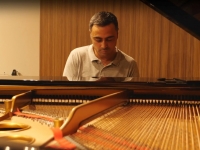
As a child, he studied piano and electronic organ for several years, while participating in several European competitions. It is, however, with composition that he finds a way to express himself fully, develop his style, and pursue his vocation.
Nowadays, his scores are played worldwide by amateurs and professional piano players whose passion resonate with Sylvain's music. His scores create worlds of romance, dreams and wonder, and open pathways to contemplation and meditation.
Nowadays, his scores are played worldwide by amateurs and professional piano players whose passion resonate with Sylvain's music. His scores create worlds of romance, dreams and wonder, and open pathways to contemplation and meditation.
Arcangelo Corelli

Arcangelo Corelli (17 February 1653 – 8 January 1713) was an Italian violinist and composer of Baroque music.
Corelli was born at Fusignano, in the current-day province of Ravenna, although at the time it was in the province of Ferrara. Little is known about his early life. His master on the violin was Giovanni Battista Bassani. Matteo Simonelli, the well-known singer of the pope’s chapel, taught him composition.
He gained his first major success in Paris at the age of nineteen, and to this he owed his European reputation. From Paris, Corelli went to Germany. In 1681 he was in the service of the electoral prince of Bavaria; between 1680 and 1685 he spent a considerable time in the house of his friend and fellow violinist-composer Cristiano Farinelli (believed to be the uncle of the celebrated castrato Farinelli).
In 1685 Corelli was in Rome, where he led the festival performances of music for Queen Christina of Sweden, and he was also a favorite of Cardinal Pietro Ottoboni, grandnephew of another Cardinal Pietro Ottoboni, who in 1689 became Pope Alexander VIII. From 1689 to 1690 he was in Modena; the Duke of Modena was generous to him. In 1708 he returned to Rome, living in the palace of Cardinal Ottoboni. His visit to Naples, at the invitation of the king, took place in the same year.
The style of execution introduced by Corelli and preserved by his pupils, such as Francesco Geminiani, Pietro Locatelli, and many others, was of vital importance for the development of violin playing. It has been said that the paths of all of the famous violinist-composers of 18th-century Italy led to Arcangelo Corelli who was their "iconic point of reference." (Toussaint Loviko, in the program notes to Italian Violin Concertos, Veritas, 2003)
Corelli was born at Fusignano, in the current-day province of Ravenna, although at the time it was in the province of Ferrara. Little is known about his early life. His master on the violin was Giovanni Battista Bassani. Matteo Simonelli, the well-known singer of the pope’s chapel, taught him composition.
He gained his first major success in Paris at the age of nineteen, and to this he owed his European reputation. From Paris, Corelli went to Germany. In 1681 he was in the service of the electoral prince of Bavaria; between 1680 and 1685 he spent a considerable time in the house of his friend and fellow violinist-composer Cristiano Farinelli (believed to be the uncle of the celebrated castrato Farinelli).
In 1685 Corelli was in Rome, where he led the festival performances of music for Queen Christina of Sweden, and he was also a favorite of Cardinal Pietro Ottoboni, grandnephew of another Cardinal Pietro Ottoboni, who in 1689 became Pope Alexander VIII. From 1689 to 1690 he was in Modena; the Duke of Modena was generous to him. In 1708 he returned to Rome, living in the palace of Cardinal Ottoboni. His visit to Naples, at the invitation of the king, took place in the same year.
The style of execution introduced by Corelli and preserved by his pupils, such as Francesco Geminiani, Pietro Locatelli, and many others, was of vital importance for the development of violin playing. It has been said that the paths of all of the famous violinist-composers of 18th-century Italy led to Arcangelo Corelli who was their "iconic point of reference." (Toussaint Loviko, in the program notes to Italian Violin Concertos, Veritas, 2003)
Paradise Lunch

Fusing jazz, rock, and soul into a frenzied but melodic chaos, Paradise Lunch is an all-female jazz band best known for their track Gun's & Roses featured in Baccano!, a hit anime series back in 2007. They soon released their debut EP and gained strong support especially among anime fans as they sold more than 10,000 copies in Japan alone. On March 2010 they released their new album Here's Paradise Lunch, featuring new versions of Gun's and Roses and more mature and organic jazz sounds, as well as new members.
Michel Corrette
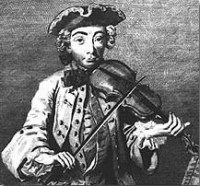
Michel Corrette (10 April 1707 – 21 January 1795) was a French composer, organist and author of musical method books.[2Corrette was born in Rouen, Normandy. His father, Gaspard Corrette, was an organist and composer. Little is known of his early life.In 1726, Corrette entered into a competition for the post of organist at the Church of Sainte-Madeleine-en-la-Cité in Paris, but was not selected. He then earned his living as a music teacher and in 1727 he published his first collections of sonatas for various instruments (flute, violin, brass, musette, and hurdy-gurdy).
Bruno Mars

Peter Gene Hernandez (born October 8, 1985), better known by his stage name Bruno Mars, is an American singer-songwriter and music producer. Raised in Honolulu, Hawaii by a family of musicians, Mars began making music at a young age. After performing in various musical venues in his hometown throughout his childhood, he decided to pursue a musical career. Mars began producing songs for other artists, joining production team The Smeezingtons.
He became recognized as a solo artist after lending his vocals and co-writing the hooks for the songs "Nothin' on You" by B.o.B, and "Billionaire" by Travie McCoy. He also co-wrote the hits "Right Round" by Flo Rida featuring Kesha, "Wavin' Flag" by K'naan, and "Fuck You!" by Cee Lo Green. In October 2010, he released his debut album, Doo-Wops & Hooligans. Anchored by the singles "Just the Way You Are" and "Grenade", the album peaked at number three on the Billboard 200. He has been nominated for seven Grammys at the 53rd Grammy Awards, which will be held on February 13, 2011.
He became recognized as a solo artist after lending his vocals and co-writing the hooks for the songs "Nothin' on You" by B.o.B, and "Billionaire" by Travie McCoy. He also co-wrote the hits "Right Round" by Flo Rida featuring Kesha, "Wavin' Flag" by K'naan, and "Fuck You!" by Cee Lo Green. In October 2010, he released his debut album, Doo-Wops & Hooligans. Anchored by the singles "Just the Way You Are" and "Grenade", the album peaked at number three on the Billboard 200. He has been nominated for seven Grammys at the 53rd Grammy Awards, which will be held on February 13, 2011.
Franz Schubert

Franz Peter Schubert (German pronunciation: ; January 31, 1797 – November 19, 1828) was an Austrian composer. He wrote some 600 Lieder, nine symphonies (including the famous "Unfinished Symphony"), liturgical music, operas, some incidental music, and a large body of chamber and solo piano music. He is particularly noted for his original melodic and harmonic writing.
Schubert was born into a musical family, and received formal musical training through much of his childhood. While Schubert had a close circle of friends and associates who admired his work (amongst them the prominent singer Johann Michael Vogl), wide appreciation of his music during his lifetime was limited at best. He was never able to secure adequate permanent employment, and for most of his career he relied on the support of friends and family. He made some money from published works, and occasionally gave private musical instruction. In the last year of his life he began to receive wider acclaim. He died at the age of 31 of "typhoid fever", a diagnosis which was vague at the time; several scholars suspect the real illness was tertiary syphilis.
Interest in Schubert's work increased dramatically in the decades following his death. Composers like Franz Liszt, Robert Schumann and Felix Mendelssohn discovered, collected, and championed his works in the 19th century, as did musicologist Sir George Grove. Franz Schubert is now widely considered to be one of the greatest composers in the Western tradition.
Schubert was born into a musical family, and received formal musical training through much of his childhood. While Schubert had a close circle of friends and associates who admired his work (amongst them the prominent singer Johann Michael Vogl), wide appreciation of his music during his lifetime was limited at best. He was never able to secure adequate permanent employment, and for most of his career he relied on the support of friends and family. He made some money from published works, and occasionally gave private musical instruction. In the last year of his life he began to receive wider acclaim. He died at the age of 31 of "typhoid fever", a diagnosis which was vague at the time; several scholars suspect the real illness was tertiary syphilis.
Interest in Schubert's work increased dramatically in the decades following his death. Composers like Franz Liszt, Robert Schumann and Felix Mendelssohn discovered, collected, and championed his works in the 19th century, as did musicologist Sir George Grove. Franz Schubert is now widely considered to be one of the greatest composers in the Western tradition.
Lev Zemlinski
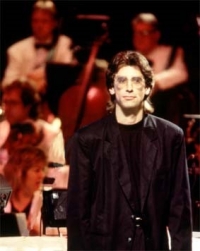
Born in 1958, Lev Zemlinski studied in Moscow Telecommunication University (electronics) and Moscow Musical College (jazz piano). While being a student he began his career as a band musician, bandleader and arranger, working with various Moscow band and solo artists. He also studied jazz in Moscow Experimental Jazz Studio - the small island of freedom in the sea of .
Handel

George Frideric Handel (Friday, 23 February 1685 - Saturday, 14 April 1759) was a German-born Baroque composer who is famous for his operas, oratorios and concerti grossi. Born as Georg Friedrich Handel in Halle, he spent most of his adult life in England, becoming a subject of the British crown on 22 January 1727. His most famous works are Messiah, an oratorio set to texts from the King James Bible; Water Music; and Music for the Royal Fireworks. Strongly influenced by the techniques of the great composers of the Italian Baroque and the English composer Henry Purcell, his music was known to many significant composers who came after him, including Haydn, Mozart, and Beethoven.
Handel's compositions include 42 operas; 29 oratorios; more than 120 cantatas, trios and duets; numerous arias; chamber music; a large number of ecumenical pieces; odes and serenatas; and sixteen organ concerti. His most famous work, the Messiah oratorio with its "Hallelujah" chorus, is among the most popular works in choral music and has become a centerpiece of the Christmas season. Also popular are the Opus 3 and 6 Concerti Grossi, as well as "The Cuckoo and the Nightingale", in which birds are heard calling during passages played in different keys representing the vocal ranges of two birds. Also notable are his sixteen keyboard suites, especially The Harmonious Blacksmith.
Handel introduced various previously uncommon musical instruments in his works: the viola d'amore and violetta marina (Orlando), the lute (Ode for St. Cecilia's Day), three trombones (Saul), clarinets or small high cornets (Tamerlano), theorbo, French horn (Water Music), lyrichord, double bassoon, viola da gamba, bell chimes, positive organ, and harp (Giulio Cesare, Alexander's Feast).
Handel's compositions include 42 operas; 29 oratorios; more than 120 cantatas, trios and duets; numerous arias; chamber music; a large number of ecumenical pieces; odes and serenatas; and sixteen organ concerti. His most famous work, the Messiah oratorio with its "Hallelujah" chorus, is among the most popular works in choral music and has become a centerpiece of the Christmas season. Also popular are the Opus 3 and 6 Concerti Grossi, as well as "The Cuckoo and the Nightingale", in which birds are heard calling during passages played in different keys representing the vocal ranges of two birds. Also notable are his sixteen keyboard suites, especially The Harmonious Blacksmith.
Handel introduced various previously uncommon musical instruments in his works: the viola d'amore and violetta marina (Orlando), the lute (Ode for St. Cecilia's Day), three trombones (Saul), clarinets or small high cornets (Tamerlano), theorbo, French horn (Water Music), lyrichord, double bassoon, viola da gamba, bell chimes, positive organ, and harp (Giulio Cesare, Alexander's Feast).
Nicola Piovani
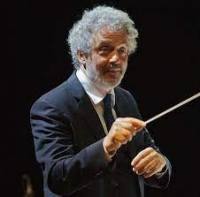
Nicola Piovani (born 26 May 1946) is an Italian light-classical musician, theater and film score composer, and winner of the 1999 Best Original Dramatic Score Oscar for the score of the Roberto Benigni film La Vita è bella, better known to English-speaking audiences as Life Is Beautiful.After high school, Piovani enrolled at the Sapienza University of Rome, receiving his degree in piano from the Verdi Conservatory in Milan in 1967, and later studied orchestration under the Greek composer Manos Hadjidakis.Among his more popular works is the score for the Federico Fellini film Intervista, his second of three collaborations with the famous director, the others being Ginger e Fred (Ginger and Fred in English) and La voce della luna (The Voice of the Moon). Years later, he composed a ballet titled Balletto Fellini.
Grieg

Edvard Hagerup Grieg (/ɡriːɡ/ GREEG, Norwegian: ; 15 June 1843 – 4 September 1907) was a Norwegian composer and pianist. He is widely considered one of the leading Romantic era composers, and his music is part of the standard classical repertoire worldwide. His use and development of Norwegian folk music in his own compositions brought the music of Norway to international consciousness, as well as helping to develop a national identity, much as Jean Sibelius and Bedřich Smetana did in Finland and Bohemia, respectively.
Grieg is the most celebrated person from the city of Bergen, with numerous statues depicting his image, and many cultural entities named after him: the city's largest concert building (Grieg Hall), its most advanced music school (Grieg Academy) and its professional choir (Edvard Grieg Kor). The Edvard Grieg Museum at Grieg's former home, Troldhaugen, is dedicated to his legacy.
Grieg is the most celebrated person from the city of Bergen, with numerous statues depicting his image, and many cultural entities named after him: the city's largest concert building (Grieg Hall), its most advanced music school (Grieg Academy) and its professional choir (Edvard Grieg Kor). The Edvard Grieg Museum at Grieg's former home, Troldhaugen, is dedicated to his legacy.
Edvard Grieg

Edvard Hagerup Grieg (15 June 1843 – 4 September 1907) was a Norwegian composer and pianist who composed in the Romantic period. He is best known for his Piano Concerto in A minor, for his incidental music to Henrik Ibsen's play Peer Gynt (which includes Morning Mood and In the Hall of the Mountain King), and for his collection of piano miniatures Lyric Pieces. "Edvard" is sometimes mispelt as "Edward".
Grieg is renowned as a nationalist composer, drawing inspiration from Norwegian folk music. Early works include a symphony (which he later suppressed) and a piano sonata. He also wrote three sonatas for violin and piano and a cello sonata. His many short pieces for piano — often based on Norwegian folk tunes and dances — led some to call him the "Chopin of the North".
Concerto in A minor: 1. Allegro molto moderato
Performed by the University of Washington Symphony, conducted by Peter Erős (Neal O'Doan, piano)
Concerto in A minor: 1. Allegro molto moderato
Performed by the Skidmore College Orchestra (courtesy of Musopen)
Concerto in A minor: 2. Adagio
Performed by the University of Washington Symphony, conducted by Peter Erős (Neal O'Doan, piano)
Concerto in A minor: 2. Adagio
Performed by the Skidmore College Orchestra (courtesy of Musopen)
Concerto in A minor: 3. Allegro moderato molto e marcato
Performed by the University of Washington Symphony, conducted by Peter Erős (Neal O'Doan, piano)
Concerto in A minor: 3. Allegro moderato molto e marcato
Performed by the Skidmore College Orchestra (courtesy of Musopen)
Notturno, Op. 54, No. 4
Performed live by Mark Gasser
Problems listening to these files? See media help.
The Piano Concerto is his most popular work. Its champions have included the pianist and composer Percy Grainger, a personal friend of Grieg who played the concerto frequently during his long career. An arrangement of part of the work made an iconic television comedy appearance in the 1971 Morecambe and Wise Show, conducted by André Previn.
Some of the Lyric Pieces (for piano) are also well-known, as is the incidental music to Henrik Ibsen's play Peer Gynt, a play that Grieg found to be an arduous work to score properly. In a 1874 letter to his friend Frants Beyer, Grieg expressed his unhappiness with what is now considered one of his most popular compositions from Peer Gynt, In the Hall of the Mountain King: "I have also written something for the scene in the hall of the mountain King - something that I literally can't bear listening to because it absolutely reeks of cow-pies, exaggerated Norwegian nationalism, and trollish self-satisfaction! But I have a hunch that the irony will be discernible."
Grieg is renowned as a nationalist composer, drawing inspiration from Norwegian folk music. Early works include a symphony (which he later suppressed) and a piano sonata. He also wrote three sonatas for violin and piano and a cello sonata. His many short pieces for piano — often based on Norwegian folk tunes and dances — led some to call him the "Chopin of the North".
Concerto in A minor: 1. Allegro molto moderato
Performed by the University of Washington Symphony, conducted by Peter Erős (Neal O'Doan, piano)
Concerto in A minor: 1. Allegro molto moderato
Performed by the Skidmore College Orchestra (courtesy of Musopen)
Concerto in A minor: 2. Adagio
Performed by the University of Washington Symphony, conducted by Peter Erős (Neal O'Doan, piano)
Concerto in A minor: 2. Adagio
Performed by the Skidmore College Orchestra (courtesy of Musopen)
Concerto in A minor: 3. Allegro moderato molto e marcato
Performed by the University of Washington Symphony, conducted by Peter Erős (Neal O'Doan, piano)
Concerto in A minor: 3. Allegro moderato molto e marcato
Performed by the Skidmore College Orchestra (courtesy of Musopen)
Notturno, Op. 54, No. 4
Performed live by Mark Gasser
Problems listening to these files? See media help.
The Piano Concerto is his most popular work. Its champions have included the pianist and composer Percy Grainger, a personal friend of Grieg who played the concerto frequently during his long career. An arrangement of part of the work made an iconic television comedy appearance in the 1971 Morecambe and Wise Show, conducted by André Previn.
Some of the Lyric Pieces (for piano) are also well-known, as is the incidental music to Henrik Ibsen's play Peer Gynt, a play that Grieg found to be an arduous work to score properly. In a 1874 letter to his friend Frants Beyer, Grieg expressed his unhappiness with what is now considered one of his most popular compositions from Peer Gynt, In the Hall of the Mountain King: "I have also written something for the scene in the hall of the mountain King - something that I literally can't bear listening to because it absolutely reeks of cow-pies, exaggerated Norwegian nationalism, and trollish self-satisfaction! But I have a hunch that the irony will be discernible."
José Alfredo Jiménez
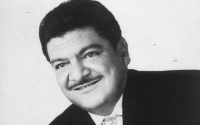
José Alfredo Jiménez-Sandoval was a Mexican singer-songwriter of rancheras, whose songs are considered an integral part of Mexico's musical heritage. Jiménez was born in Dolores Hidalgo, Guanajuato, Mexico.
bijan mortazavi
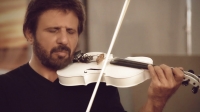
Bijan Mortazavi (Persian: بیژن مرتضوی, born November 16, 1957) is an Iranian virtuoso violinist, musician, composer, songwriter, arranger and singer.Born in the city of Sari, Iran. Mortazavi studied music in Tehran. He was trained in improvisation, orchestration, arrangement, quarter tone technique, and dastgah by various well-known violinists in Iran.
The Rolling Stones
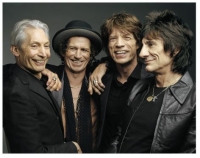
The Rolling Stones are an English band whose music was initially based on rhythm and blues and rock and roll. Formed in London and having their first success in the UK, they subsequently became popular in the US during the "British Invasion" in the early 1960s.
The band formed in 1962 when original leader Brian Jones and pianist Ian Stewart were joined by singer Mick Jagger as lead vocals and guitarist Keith Richards, whose songwriting partnership later contributed to their taking the leadership role in the group. Bassist Bill Wyman and drummer Charlie Watts completed the early lineup. Ian Stewart was removed from the official lineup in 1963 but continued to work with the band as road manager and keyboardist until his death in 1985.
The band's early recordings were mainly covers of American blues and R&B songs. Their 1965 single "(I Can't Get No) Satisfaction" established The Rolling Stones as a premier rock and roll act. Starting with their 1966 album Aftermath, the songs of Jagger and Richards, aided by the instrumental experimentation of Jones, expanded an always present stylistic flexibility. Jones died in 1969 shortly after being fired from the band and was replaced by Mick Taylor. Taylor recorded five albums with The Rolling Stones before quitting in 1974. Former Faces guitarist Ronnie Wood stepped in and has been with the band ever since. Wyman left the Rolling Stones in 1993; bassist Darryl Jones, who is not an official band member, has worked with the group since 1994.
The Rolling Stones have released 22 studio albums in the UK (24 in the US), eight concert albums (nine in the US) and numerous compilations; they have had 32 UK & US top-10 singles, 43 UK & US top-10 albums from 1964 and 2008 and have sold more than 200 million albums worldwide. 1971's Sticky Fingers began a string of eight consecutive studio albums at number one in the United States. In 1989 The Rolling Stones were inducted into the American Rock and Roll Hall of Fame, and in 2004 they were ranked number 4 in Rolling Stone magazine's 100 Greatest Artists of All Time. They are also ranked as the number 2 artists of all time on Acclaimedmusic.net. Their latest studio album, A Bigger Bang, was released in 2005 and followed by the highest-grossing tour in history, which lasted into late summer 2007. During the 1969 American tour, tour manager Sam Cutler introduced them as "The Greatest Rock and Roll Band in the World". Their image of unkempt and surly youth is one that many musicians still emulate.
The band formed in 1962 when original leader Brian Jones and pianist Ian Stewart were joined by singer Mick Jagger as lead vocals and guitarist Keith Richards, whose songwriting partnership later contributed to their taking the leadership role in the group. Bassist Bill Wyman and drummer Charlie Watts completed the early lineup. Ian Stewart was removed from the official lineup in 1963 but continued to work with the band as road manager and keyboardist until his death in 1985.
The band's early recordings were mainly covers of American blues and R&B songs. Their 1965 single "(I Can't Get No) Satisfaction" established The Rolling Stones as a premier rock and roll act. Starting with their 1966 album Aftermath, the songs of Jagger and Richards, aided by the instrumental experimentation of Jones, expanded an always present stylistic flexibility. Jones died in 1969 shortly after being fired from the band and was replaced by Mick Taylor. Taylor recorded five albums with The Rolling Stones before quitting in 1974. Former Faces guitarist Ronnie Wood stepped in and has been with the band ever since. Wyman left the Rolling Stones in 1993; bassist Darryl Jones, who is not an official band member, has worked with the group since 1994.
The Rolling Stones have released 22 studio albums in the UK (24 in the US), eight concert albums (nine in the US) and numerous compilations; they have had 32 UK & US top-10 singles, 43 UK & US top-10 albums from 1964 and 2008 and have sold more than 200 million albums worldwide. 1971's Sticky Fingers began a string of eight consecutive studio albums at number one in the United States. In 1989 The Rolling Stones were inducted into the American Rock and Roll Hall of Fame, and in 2004 they were ranked number 4 in Rolling Stone magazine's 100 Greatest Artists of All Time. They are also ranked as the number 2 artists of all time on Acclaimedmusic.net. Their latest studio album, A Bigger Bang, was released in 2005 and followed by the highest-grossing tour in history, which lasted into late summer 2007. During the 1969 American tour, tour manager Sam Cutler introduced them as "The Greatest Rock and Roll Band in the World". Their image of unkempt and surly youth is one that many musicians still emulate.
Astor Piazzola

Astor Pantaleón Piazzolla (Spanish pronunciation: , Italian pronunciation: ; March 11, 1921 – July 4, 1992) was an Argentine tango composer, bandoneon player, and arranger. His oeuvre revolutionized the traditional tango into a new style termed nuevo tango, incorporating elements from jazz and classical music. A virtuoso bandoneonist, he regularly performed his own compositions with a variety of ensembles.
In 1992, American music critic Stephen Holden described Piazzolla as "the world's foremost composer of tango music"
In 1992, American music critic Stephen Holden described Piazzolla as "the world's foremost composer of tango music"
Mozart

Wolfgang Amadeus Mozart, full name Johann Chrysostom Wolfgang Amadeus Mozart (27 January 1756 â 5 December 1791) was a prolific and influential composer of the Classical era. His over 600 compositions include works widely acknowledged as pinnacles of symphonic, concertante, chamber, piano, operatic, and choral music. Mozart is among the most enduringly popular of classical composers, and many of his works are part of the standard concert repertoire.
Mozart's music, like Haydn's, stands as an archetypal example of the Classical style. His works spanned the period during which that style transformed from one exemplified by the style galant to one that began to incorporate some of the contrapuntal complexities of the late Baroque, complexities against which the galant style had been a reaction. Mozart's own stylistic development closely paralleled the development of the classical style as a whole. In addition, he was a versatile composer and wrote in almost every major genre, including symphony, opera, the solo concerto, chamber music including string quartet and string quintet, and the piano sonata. While none of these genres were new, the piano concerto was almost single-handedly developed and popularized by Mozart. He also wrote a great deal of religious music, including masses; and he composed many dances, divertimenti, serenades, and other forms of light entertainment.
The central traits of the classical style can be identified in Mozart's music. Clarity, balance, and transparency are hallmarks of his work.
Mozart's music, like Haydn's, stands as an archetypal example of the Classical style. His works spanned the period during which that style transformed from one exemplified by the style galant to one that began to incorporate some of the contrapuntal complexities of the late Baroque, complexities against which the galant style had been a reaction. Mozart's own stylistic development closely paralleled the development of the classical style as a whole. In addition, he was a versatile composer and wrote in almost every major genre, including symphony, opera, the solo concerto, chamber music including string quartet and string quintet, and the piano sonata. While none of these genres were new, the piano concerto was almost single-handedly developed and popularized by Mozart. He also wrote a great deal of religious music, including masses; and he composed many dances, divertimenti, serenades, and other forms of light entertainment.
The central traits of the classical style can be identified in Mozart's music. Clarity, balance, and transparency are hallmarks of his work.
Alexander Glazunov
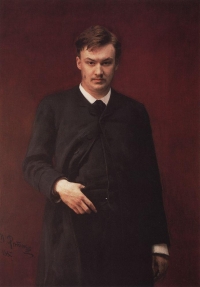
Alexander Konstantinovich Glazunov (Russian: Алекса́ндр Константи́нович Глазуно́в, 10 August 1865 – 21 March 1936) was a Russian composer, music teacher, and conductor of the late Russian Romantic period. He served as director of the Saint Petersburg Conservatory between 1905 and 1928 and was instrumental in the reorganization of the institute into the Petrograd Conservatory, then the Leningrad Conservatory, following the Bolshevik Revolution. He continued heading the Conservatory until 1930, though he had left the Soviet Union in 1928 and did not return. The best-known student under his tenure during the early Soviet years was Dmitri Shostakovich.
Rossini

Gioachino Antonio Rossini (February 29, 1792 – November 13, 1868) was a popular Italian composer who created 39 operas as well as sacred music and chamber music. His best known works include Il barbiere di Siviglia (The Barber of Seville), La Cenerentola and Guillaume Tell (William Tell).
Rossini's most famous opera was produced on February 20, 1816 at the Teatro Argentina in Rome. The libretto by Cesare Sterbini, a version of Pierre Beaumarchais' infamous stage play Le Barbier de Séville, was the same as that already used by Giovanni Paisiello in his own Barbiere, an opera which had enjoyed European popularity for more than a quarter of a century. Much is made of how fast Rossini's opera was written, scholarship generally agreeing upon two weeks. Later in life, Rossini claimed to have written the opera in only twelve days. It was a colossal failure when it premiered as Almaviva; Paisiello’s admirers were extremely indignant, sabotaging the production by whistling and shouting during the entire first act. However, not long after the second performance, the opera became so successful that the fame of Paisiello's opera was transferred to Rossini's, to which the title The Barber of Seville passed as an inalienable heritage.
Rossini's most famous opera was produced on February 20, 1816 at the Teatro Argentina in Rome. The libretto by Cesare Sterbini, a version of Pierre Beaumarchais' infamous stage play Le Barbier de Séville, was the same as that already used by Giovanni Paisiello in his own Barbiere, an opera which had enjoyed European popularity for more than a quarter of a century. Much is made of how fast Rossini's opera was written, scholarship generally agreeing upon two weeks. Later in life, Rossini claimed to have written the opera in only twelve days. It was a colossal failure when it premiered as Almaviva; Paisiello’s admirers were extremely indignant, sabotaging the production by whistling and shouting during the entire first act. However, not long after the second performance, the opera became so successful that the fame of Paisiello's opera was transferred to Rossini's, to which the title The Barber of Seville passed as an inalienable heritage.
Saint Saens

Charles-Camille Saint-Saëns (9 October 1835 – 16 December 1921) was a French composer, organist, conductor, and pianist, known especially for The Carnival of the Animals, Danse Macabre, Samson and Delilah, Havanaise, Introduction and Rondo capriccioso, and his Symphony No. 3 (Organ Symphony).
Chopin

Frédéric Chopin (1 March 1810 – 17 October 1849) was a Polish composer and virtuoso pianist of the Romantic period. He is widely regarded as the greatest Polish composer, and ranks as one of music's greatest tone poets.
He was born in the village of Żelazowa Wola, in the Duchy of Warsaw, to a Polish mother and French-expatriate father, and in his early life was regarded as a child-prodigy pianist. In November 1830, at the age of 20, Chopin went abroad; following the suppression of the Polish November Uprising of 1830–31, he became one of many expatriates of the Polish "Great Emigration."
In Paris, he made a comfortable living as a composer and piano teacher, while giving few public performances. A Polish patriot,
Chopin's extant compositions were written primarily for the piano as a solo instrument. Though technically demanding, Chopin's style emphasizes nuance and expressive depth rather than virtuosity. Chopin invented musical forms such as the ballade and was responsible for major innovations in forms such as the piano sonata, waltz, nocturne, étude, impromptu and prelude. His works are mainstays of Romanticism in 19th-century classical music.
He was born in the village of Żelazowa Wola, in the Duchy of Warsaw, to a Polish mother and French-expatriate father, and in his early life was regarded as a child-prodigy pianist. In November 1830, at the age of 20, Chopin went abroad; following the suppression of the Polish November Uprising of 1830–31, he became one of many expatriates of the Polish "Great Emigration."
In Paris, he made a comfortable living as a composer and piano teacher, while giving few public performances. A Polish patriot,
Chopin's extant compositions were written primarily for the piano as a solo instrument. Though technically demanding, Chopin's style emphasizes nuance and expressive depth rather than virtuosity. Chopin invented musical forms such as the ballade and was responsible for major innovations in forms such as the piano sonata, waltz, nocturne, étude, impromptu and prelude. His works are mainstays of Romanticism in 19th-century classical music.
W.A. Mozart

Wolfgang Amadeus Mozart (German: , full baptismal name Johannes Chrysostomus Wolfgangus Theophilus Mozart (27 January 1756 – 5 December 1791), was a prolific and influential composer of the Classical era. He composed over 600 works, many acknowledged as pinnacles of symphonic, concertante, chamber, piano, operatic, and choral music. He is among the most enduringly popular of classical composers.
Mozart showed prodigious ability from his earliest childhood in Salzburg. Already competent on keyboard and violin, he composed from the age of five and performed before European royalty; at 17 he was engaged as a court musician in Salzburg, but grew restless and traveled in search of a better position, always composing abundantly. While visiting Vienna in 1781, he was dismissed from his Salzburg position. He chose to stay in the capital, where he achieved fame but little financial security. During his final years in Vienna, he composed many of his best-known symphonies, concertos, and operas, and the Requiem. The circumstances of his early death have been much mythologized. He was survived by his wife Constanze and two sons.
Mozart learned voraciously from others, and developed a brilliance and maturity of style that encompassed the light and graceful along with the dark and passionate—the whole informed by a vision of humanity "redeemed through art, forgiven, and reconciled with nature and the absolute." His influence on subsequent Western art music is profound. Beethoven wrote his own early compositions in the shadow of Mozart, of whom Joseph Haydn wrote that "posterity will not see such a talent again in 100 years."
Mozart showed prodigious ability from his earliest childhood in Salzburg. Already competent on keyboard and violin, he composed from the age of five and performed before European royalty; at 17 he was engaged as a court musician in Salzburg, but grew restless and traveled in search of a better position, always composing abundantly. While visiting Vienna in 1781, he was dismissed from his Salzburg position. He chose to stay in the capital, where he achieved fame but little financial security. During his final years in Vienna, he composed many of his best-known symphonies, concertos, and operas, and the Requiem. The circumstances of his early death have been much mythologized. He was survived by his wife Constanze and two sons.
Mozart learned voraciously from others, and developed a brilliance and maturity of style that encompassed the light and graceful along with the dark and passionate—the whole informed by a vision of humanity "redeemed through art, forgiven, and reconciled with nature and the absolute." His influence on subsequent Western art music is profound. Beethoven wrote his own early compositions in the shadow of Mozart, of whom Joseph Haydn wrote that "posterity will not see such a talent again in 100 years."
Owl City
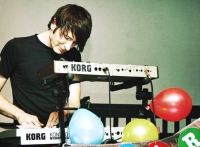
Owl City is an American synthpop musical project by Adam Young. Young started out making music in his parents' basement in Owatonna, Minnesota which he claims is a result of his insomnia.
Young's influences are disco and European electronic music. After two independent albums, Owl City gained mainstream popularity from the 2009 major label debut album Ocean Eyes, which spawned the U.S. Billboard Hot 100 #1 hit single "Fireflies". "Fireflies" topped the US and Canadian charts and became the most-downloaded song on iTunes in the US, and the album Ocean Eyes reached the top ten on the US album charts and topped the US electronic charts. Ocean Eyes also reached Amazon MP3's top 10 most downloaded album list. By December 2009, it was certified Gold in the United States.
Young's influences are disco and European electronic music. After two independent albums, Owl City gained mainstream popularity from the 2009 major label debut album Ocean Eyes, which spawned the U.S. Billboard Hot 100 #1 hit single "Fireflies". "Fireflies" topped the US and Canadian charts and became the most-downloaded song on iTunes in the US, and the album Ocean Eyes reached the top ten on the US album charts and topped the US electronic charts. Ocean Eyes also reached Amazon MP3's top 10 most downloaded album list. By December 2009, it was certified Gold in the United States.
Alain Lefèvre
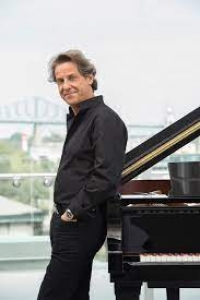
Alain Lefèvre, OC CQ is a French Canadian pianist and composer. He is one of the Québécois pianists who have sold the greatest number of musical recordings. In 2009, he was made a Knight of the National Order of Quebec. He was appointed an Officer of the Order of Canada in 2011.
Henry Purcell

Henry Purcell (pronounced /ˈpɜrsəl/; 10 September 1659 (?) – 21 November 1695), was an English organist and Baroque composer of secular and sacred music. Although Purcell incorporated Italian and French stylistic elements into his compositions, his legacy was a uniquely English form of Baroque music.
John Williams

John Towner Williams (born February 8, 1932) is an American composer, conductor, and pianist. In a career that spans six decades, Williams has composed many of the most famous film scores in Hollywood history, including Star Wars, Superman, Home Alone, the first three Harry Potter movies and all but two of Steven Spielberg's feature films including the Indiana Jones series, Schindler's List, E.T. the Extra-Terrestrial, Jurassic Park and Jaws. He also composed the soundtrack for the hit 1960s television series Lost in Space as well as the fanfare of the DreamWorks Pictures' logo.
Williams has composed theme music for four Olympic Games, the NBC Nightly News, the rededication of the Statue of Liberty, and numerous television series and concert pieces. He served as the principal conductor of the Boston Pops Orchestra from 1980 to 1993, and is now the orchestra's laureate conductor.
Williams is a five-time winner of the Academy Award. He has also won four Golden Globe Awards, seven BAFTA Awards and 21 Grammy Awards. With 45 Academy Award nominations, Williams is, together with composer Alfred Newman, the second most nominated person after Walt Disney. He was inducted into the Hollywood Bowl Hall of Fame in 2000, and was a recipient of the Kennedy Center Honors in 2004.
Williams has composed theme music for four Olympic Games, the NBC Nightly News, the rededication of the Statue of Liberty, and numerous television series and concert pieces. He served as the principal conductor of the Boston Pops Orchestra from 1980 to 1993, and is now the orchestra's laureate conductor.
Williams is a five-time winner of the Academy Award. He has also won four Golden Globe Awards, seven BAFTA Awards and 21 Grammy Awards. With 45 Academy Award nominations, Williams is, together with composer Alfred Newman, the second most nominated person after Walt Disney. He was inducted into the Hollywood Bowl Hall of Fame in 2000, and was a recipient of the Kennedy Center Honors in 2004.
Thomas Newman
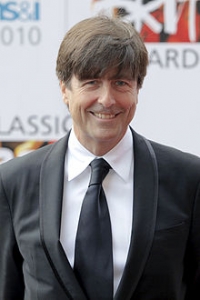
Thomas Montgomery Newman (born October 20, 1955) is an American composer best known for his many film scores.
Newman has been nominated for fourteen Academy Awards and three Golden Globes, and has won two BAFTAs, six Grammys and an Emmy Award. Newman was honored with the Richard Kirk award at the 2000 BMI Film and TV Awards. The award is given annually to a composer who has made significant contributions to film and television music.
Newman has been nominated for fourteen Academy Awards and three Golden Globes, and has won two BAFTAs, six Grammys and an Emmy Award. Newman was honored with the Richard Kirk award at the 2000 BMI Film and TV Awards. The award is given annually to a composer who has made significant contributions to film and television music.
Jay Chou
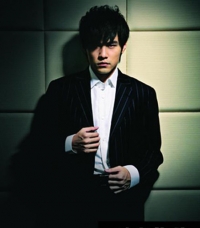
Jay Chou (traditional Chinese: 周杰倫; simplified Chinese: 周杰伦; pinyin: Zhōu Jiélún; Wade-Giles: Chou Chieh-lun; Pe̍h-ōe-jī: Chiu Kia̍t-lûn) (born January 18, 1979) is a Taiwanese musician, singer, producer, actor and director who has won the World Music Award four times. He is well-known for composing all his own songs and songs for other singers. In 1998 he was discovered in a talent contest where he displayed his piano and song-writing skills. Over the next two years, he was hired to compose for popular Chinese singers. Although he was trained in classical music, Chou combines Chinese and Western music styles to produce songs that fuse R&B, rock and pop genres, covering issues such as domestic violence, war, and urbanization.
In 2000 Chou released his first album, titled Jay, under the record company Alfa Music. Since then he has released one album per year, selling several million copies each. His music has gained recognition throughout Asia, most notably in regions such as Taiwan, China, Hong Kong, Japan, Malaysia, Indonesia, Singapore, Thailand, Vietnam and in overseas Asian communities, winning more than 20 awards each year. He has sold over 25 million albums worldwide. He debuted his acting career in Initial D (2005), for which he won Best Newcomer Actor in Golden Horse Awards, and was nominated for Best Supporting Actor by Hong Kong Film Awards for his role in Curse of the Golden Flower (2006). His career now extends into directing and running his own record company JVR Music. He has also endorsed various models of Media Players released by Onda in which he appears on the box, and his signature and likeness is printed on the back of certain models of these players.
In 2000 Chou released his first album, titled Jay, under the record company Alfa Music. Since then he has released one album per year, selling several million copies each. His music has gained recognition throughout Asia, most notably in regions such as Taiwan, China, Hong Kong, Japan, Malaysia, Indonesia, Singapore, Thailand, Vietnam and in overseas Asian communities, winning more than 20 awards each year. He has sold over 25 million albums worldwide. He debuted his acting career in Initial D (2005), for which he won Best Newcomer Actor in Golden Horse Awards, and was nominated for Best Supporting Actor by Hong Kong Film Awards for his role in Curse of the Golden Flower (2006). His career now extends into directing and running his own record company JVR Music. He has also endorsed various models of Media Players released by Onda in which he appears on the box, and his signature and likeness is printed on the back of certain models of these players.
Charlie Daniels
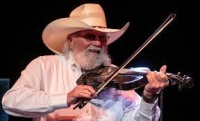
Charles Edward Daniels was an American singer, songwriter and multi-instrumentalist known for his contributions to Southern rock, country, and bluegrass music. He was best known for his number-one country hit "The Devil Went Down to Georgia".
David Silver
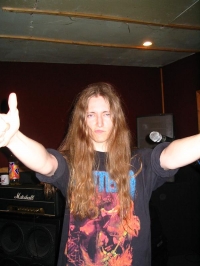
Dave Silver musician,guitar player Real/full name: David Silver Age: 34 (born Mar 17th, 1987) Place of origin:
United Kingdom (Birmingham)
United Kingdom (Birmingham)
Gaetano Braga
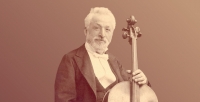
Gaetano Braga (June 9, 1829 – November 21, 1907) was an Italian composer and cellist.He was born in Giulianova in Abruzzi and died in Milan.Portrait of Gaetano Braga by Andrea Baronchelli
Braga's works include compositions for the cello (two concertos, a quintet, a quartet, works for cello and piano) and the operas.A "Serenata" (serenade) by Braga, sometimes called "Angel's Serenade" or "Légende valaque" (Wallachian Legend), is a dialogue (comparable to that in "Erlkönig") between a worried mother and a girl who hears an angel's voice calling her; in the end the girl follows the voice ("O mamma buona notte, io seguo il suon, io seguo il suon!"). It is mentioned in Anton Chekhov's short story "The Black Monk," as well as in other Russian works of the late 19th and early 20th centuries.[1
Braga's works include compositions for the cello (two concertos, a quintet, a quartet, works for cello and piano) and the operas.A "Serenata" (serenade) by Braga, sometimes called "Angel's Serenade" or "Légende valaque" (Wallachian Legend), is a dialogue (comparable to that in "Erlkönig") between a worried mother and a girl who hears an angel's voice calling her; in the end the girl follows the voice ("O mamma buona notte, io seguo il suon, io seguo il suon!"). It is mentioned in Anton Chekhov's short story "The Black Monk," as well as in other Russian works of the late 19th and early 20th centuries.[1
Bernard Herrmann
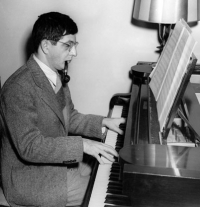
Bernard Herrmann (June 29, 1911 – December 24, 1975) was an American composer noted for his work in motion pictures.
An Academy Award-winner (for The Devil and Daniel Webster, 1941), Herrmann is particularly known for his collaborations with director Alfred Hitchcock, most famously Psycho, North by Northwest, The Man Who Knew Too Much, and Vertigo. He also composed notable scores for many other movies, including Citizen Kane, The Ghost and Mrs. Muir, Cape Fear, and Taxi Driver. He worked extensively in radio drama (most notably for Orson Welles), composed the scores for several fantasy films by Ray Harryhausen, and many TV programs including most notably Rod Serling's The Twilight Zone.
An Academy Award-winner (for The Devil and Daniel Webster, 1941), Herrmann is particularly known for his collaborations with director Alfred Hitchcock, most famously Psycho, North by Northwest, The Man Who Knew Too Much, and Vertigo. He also composed notable scores for many other movies, including Citizen Kane, The Ghost and Mrs. Muir, Cape Fear, and Taxi Driver. He worked extensively in radio drama (most notably for Orson Welles), composed the scores for several fantasy films by Ray Harryhausen, and many TV programs including most notably Rod Serling's The Twilight Zone.
Stanley Myers
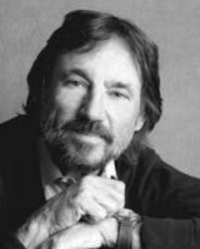
Stanley Myers (6 October 1930 – 9 November 1993), was a prolific British film composer who scored over sixty films. Born in Birmingham, as a teenager Myers went to King Edward's School in Edgbaston, a suburb of Birmingham. He is also known for composers music for cult films House of Whipcord, Frightmare and House of Mortal Sin for cult filmmaker Peter Walker.
He is best known for Cavatina (1970), an evocative guitar piece that served as the signature theme for Michael Cimino's 1978 film The Deer Hunter, and for which Myers won the Ivor Novello Award. A somewhat different version of this work, performed by John Williams, had appeared in The Walking Stick. And yet another version had lyrics added. Cleo Laine and Iris Williams, in separate recordings as He Was Beautiful, helped to make Cavatina become even more popular.
He is best known for Cavatina (1970), an evocative guitar piece that served as the signature theme for Michael Cimino's 1978 film The Deer Hunter, and for which Myers won the Ivor Novello Award. A somewhat different version of this work, performed by John Williams, had appeared in The Walking Stick. And yet another version had lyrics added. Cleo Laine and Iris Williams, in separate recordings as He Was Beautiful, helped to make Cavatina become even more popular.
Martin O'Donnell and Michael Salvatori
Martin O'Donnell and Michael Salvatori for Bungie, the soundtrack was released on June 11, 2002. Most of the music from Halo: Combat Evolved is present on the CD, although some songs have been remixed by O'Donnell in medley form for "more enjoyable" listening. The first piece O'Donnell wrote, known as "Halo", became the basis for Halo's "signature sound" which has been heard in the other games of the main trilogy.
Paganini

Niccolò Paganini (27 October 1782 – 27 May 1840) was an Italian violinist, violist, guitarist, and composer. He was one of the most celebrated violin virtuosi of his time, and left his mark as one of the pillars of modern violin technique. His caprice in A minor, Op. 1 No. 24 is among his best known of compositions, and serves as inspiration for many prominent artists.
Paganini composed his own works to play exclusively in his concerts, all of which had profound influences on the evolution of violin techniques. His 24 Caprices were probably composed in the period between 1805 to 1809, while he was in the service of the Baciocchi court. Also during this period, he composed the majority of the solo pieces, duo-sonatas,trios and quartets for the guitar. These chamber works may have been inspired by the publication, in Lucca, of the guitar quintets of Boccherini. Many of his variations (and he has become the de facto master of this musical genre), including Le Streghe, The Carnival of Venice, and Nel cor più non mi sento, were composed, or at least first performed, before his European concert tour.
Playbill of Paganini's concert at the Covent Garden in 1832. Note that all solo pieces were of his composition, which was typical of all his concerts.
Generally speaking, Paganini's compositions were technically imaginative, and the timbre of the instrument was greatly expanded as a result of these works. Sounds of different musical instruments and animals were often imitated. One such composition was titled Il Fandango Spanolo (The Spanish Dance), which featured a series of humorous imitations of farm animals. Even more outrageous was a solo piece Duetto Amoroso, in which the sighs and groans of lovers were intimately depicted on the violin. Fortunately there survives a manuscript of the Duetto which has been recorded, while the existence of the Fandango is known only through concert posters.
However, his works were criticized for lacking characteristics of true polyphonism, as pointed out by Eugène Ysaÿe. Yehudi Menuhin, on the other hand, suggested that this might have been the result of his reliance on the guitar (in lieu of the piano) as an aid in composition. The orchestral parts for his concertos were often polite, unadventurous, and clearly supportive of the soloist. In this, his style is consistent with that of other Italian composers such as Paisiello, Rossini and Donizetti, who were influenced by the guitar-song milieu of Naples during this period.
Paganini was also the inspiration of many prominent composers. Both "La Campanella" and the A minor caprice (Nr. 24) have been an object of interest for a number of composers. Franz Liszt, Johannes Brahms, Sergei Rachmaninoff, Boris Blacher, Andrew Lloyd Webber, George Rochberg and Witold Lutosławski, among others, wrote well-known variations on these themes.
Paganini composed his own works to play exclusively in his concerts, all of which had profound influences on the evolution of violin techniques. His 24 Caprices were probably composed in the period between 1805 to 1809, while he was in the service of the Baciocchi court. Also during this period, he composed the majority of the solo pieces, duo-sonatas,trios and quartets for the guitar. These chamber works may have been inspired by the publication, in Lucca, of the guitar quintets of Boccherini. Many of his variations (and he has become the de facto master of this musical genre), including Le Streghe, The Carnival of Venice, and Nel cor più non mi sento, were composed, or at least first performed, before his European concert tour.
Playbill of Paganini's concert at the Covent Garden in 1832. Note that all solo pieces were of his composition, which was typical of all his concerts.
Generally speaking, Paganini's compositions were technically imaginative, and the timbre of the instrument was greatly expanded as a result of these works. Sounds of different musical instruments and animals were often imitated. One such composition was titled Il Fandango Spanolo (The Spanish Dance), which featured a series of humorous imitations of farm animals. Even more outrageous was a solo piece Duetto Amoroso, in which the sighs and groans of lovers were intimately depicted on the violin. Fortunately there survives a manuscript of the Duetto which has been recorded, while the existence of the Fandango is known only through concert posters.
However, his works were criticized for lacking characteristics of true polyphonism, as pointed out by Eugène Ysaÿe. Yehudi Menuhin, on the other hand, suggested that this might have been the result of his reliance on the guitar (in lieu of the piano) as an aid in composition. The orchestral parts for his concertos were often polite, unadventurous, and clearly supportive of the soloist. In this, his style is consistent with that of other Italian composers such as Paisiello, Rossini and Donizetti, who were influenced by the guitar-song milieu of Naples during this period.
Paganini was also the inspiration of many prominent composers. Both "La Campanella" and the A minor caprice (Nr. 24) have been an object of interest for a number of composers. Franz Liszt, Johannes Brahms, Sergei Rachmaninoff, Boris Blacher, Andrew Lloyd Webber, George Rochberg and Witold Lutosławski, among others, wrote well-known variations on these themes.
Emilie Autumn

Emilie Autumn Liddell (born on September 22, 1979), better known by her stage name Emilie Autumn, is an American singer-songwriter, poet, author, violinist, and actress. Autumn's musical style is described by her as "Fairy Pop", "Fantasy Rock" or "Victoriandustrial". It is influenced by glam rock and from plays, novels, and history, particularly the Victorian era. Performing with her all-female backup dancers The Bloody Crumpets, Autumn incorporates elements of classical music, cabaret, electronica, and glam rock with theatrics, and burlesque.
Johann Nepomuk Hummel
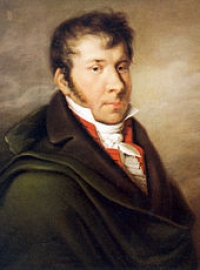
Johann Nepomuk Hummel (14 November 1778 – 17 October 1837) was an Austrian composer and virtuoso pianist. His music reflects the transition from the classical to the romantic musical era.Hummel was born as an only child (which was unusual for that period) in Pressburg, Kingdom of Hungary (now Bratislava, Slovakia). He was named after the Czech patron saint John of Nepomuk. His father, Johannes Hummel, was the director of the Imperial School of Military Music in Vienna; his mother, Margarethe Sommer Hummel, was the widow of the wigmaker Josef Ludwig. The couple married just four months beforehand.
Tchaikovsky

Pyotr Il'yich Tchaikovsky (May 7 1840 â November 6 1893) was a Russian composer of the Romantic era. While not part of the nationalistic music group known as "The Five", Tchaikovsky wrote music which, in the opinion of Harold Schonberg, was distinctly Russian: plangent, introspective, with modally-inflected melody and harmony.
Aesthetically, Tchaikovsky remained open to all aspects of Saint Petersburg musical life. He was impressed by Serov and Balakirev as well as the classical values upheld by the conservatory. Both the progressive and conservative camps in Russian music at the time attempted to win him over. Tchaikovsky charted his compositional course between these two factions, retaining his individuality as a composer as well as his Russian identity. In this he was influenced by the ideals of his teacher Nikolai Rubinstein and Nikolai's brother Anton.
Tchaikovsky's musical cosmopolitanism led him to be favored by many Russian music-lovers over the "Russian" harmonies and styles of Mussorgsky, Borodin and Rimsky-Korsakov.
Nonetheless he frequently adapted Russian traditional melodies and dance forms in his music, which enhanced his success in his home country. The success in St. Petersburg at the premiere of his Third Orchestral Suite may have been due in large part to his concluding the work with a polonaise. He also used a polonaise for the final movement of his Third Symphony.
Aesthetically, Tchaikovsky remained open to all aspects of Saint Petersburg musical life. He was impressed by Serov and Balakirev as well as the classical values upheld by the conservatory. Both the progressive and conservative camps in Russian music at the time attempted to win him over. Tchaikovsky charted his compositional course between these two factions, retaining his individuality as a composer as well as his Russian identity. In this he was influenced by the ideals of his teacher Nikolai Rubinstein and Nikolai's brother Anton.
Tchaikovsky's musical cosmopolitanism led him to be favored by many Russian music-lovers over the "Russian" harmonies and styles of Mussorgsky, Borodin and Rimsky-Korsakov.
Nonetheless he frequently adapted Russian traditional melodies and dance forms in his music, which enhanced his success in his home country. The success in St. Petersburg at the premiere of his Third Orchestral Suite may have been due in large part to his concluding the work with a polonaise. He also used a polonaise for the final movement of his Third Symphony.
Haydn

Franz Joseph Haydn (March 31, 1732 – May 31, 1809) was one of the most prominent composers of the classical period, and is called by some the "Father of the Symphony" and "Father of the String Quartet".
A life-long resident of Austria, Haydn spent most of his career as a court musician for the wealthy Hungarian Esterházy family on their remote estate. Isolated from other composers and trends in music until the later part of his long life, he was, as he put it, "forced to become original".
Although Haydn is still often called "Franz Joseph Haydn", the composer did not use the name "Franz" during his lifetime and this misnomer is avoided by modern scholars and historians. Joseph Haydn was the brother of Michael Haydn, himself a highly regarded composer, and Johann Evangelist Haydn, a tenor.
A central characteristic of Haydn's music is the development of larger structures out of very short, simple musical motifs, often derived from standard accompanying figures. The music is often quite formally concentrated, and the important musical events of a movement can unfold rather quickly.
Haydn's work was central to the development of what came to be called sonata form. His practice, however, differed in some ways from that of Mozart and Beethoven, his younger contemporaries who likewise excelled in this form of composition. Haydn was particularly fond of the so-called "monothematic exposition", in which the music that establishes the dominant key is similar or identical to the opening theme. Haydn also differs from Mozart and Beethoven in his recapitulation sections, where he often rearranges the order of themes compared to the exposition and uses extensive thematic development.
Perhaps more than any other composer's, Haydn's music is known for its humour. The most famous example is the sudden loud chord in the slow movement of his "Surprise" symphony; Haydn's many other musical jokes include numerous false endings (e.g., in the quartets Op. 33 No. 2 and Op. 50 No. 3), and the remarkable rhythmic illusion placed in the trio section of the third movement of Op. 50 No. 1.
A life-long resident of Austria, Haydn spent most of his career as a court musician for the wealthy Hungarian Esterházy family on their remote estate. Isolated from other composers and trends in music until the later part of his long life, he was, as he put it, "forced to become original".
Although Haydn is still often called "Franz Joseph Haydn", the composer did not use the name "Franz" during his lifetime and this misnomer is avoided by modern scholars and historians. Joseph Haydn was the brother of Michael Haydn, himself a highly regarded composer, and Johann Evangelist Haydn, a tenor.
A central characteristic of Haydn's music is the development of larger structures out of very short, simple musical motifs, often derived from standard accompanying figures. The music is often quite formally concentrated, and the important musical events of a movement can unfold rather quickly.
Haydn's work was central to the development of what came to be called sonata form. His practice, however, differed in some ways from that of Mozart and Beethoven, his younger contemporaries who likewise excelled in this form of composition. Haydn was particularly fond of the so-called "monothematic exposition", in which the music that establishes the dominant key is similar or identical to the opening theme. Haydn also differs from Mozart and Beethoven in his recapitulation sections, where he often rearranges the order of themes compared to the exposition and uses extensive thematic development.
Perhaps more than any other composer's, Haydn's music is known for its humour. The most famous example is the sudden loud chord in the slow movement of his "Surprise" symphony; Haydn's many other musical jokes include numerous false endings (e.g., in the quartets Op. 33 No. 2 and Op. 50 No. 3), and the remarkable rhythmic illusion placed in the trio section of the third movement of Op. 50 No. 1.
The Verve
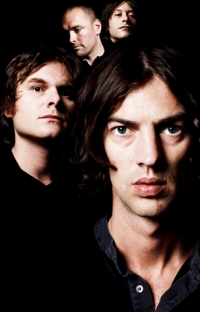
The Verve (originally Verve) are an English rock band formed in Wigan, Greater Manchester in 1989 at Winstanley Sixth Form College, by vocalist Richard Ashcroft, guitarist Nick McCabe, bassist Simon Jones, and drummer Peter Salisbury. Simon Tong later became a member. The band split in April 1999 due to inner conflicts which led to McCabe's departure. The band's original line-up reunited in June 2007. The band embarked on a tour in late 2007 and released Forth in August 2008.
Beginning with a psychedelic sound indebted to space rock and shoegazing, by the mid-1990s the band had released several EPs and two acclaimed records. They also endured name and lineup changes, breakups, health problems, drug abuse and various lawsuits. The band's commercial breakthrough was the album Urban Hymns and its single "Bitter Sweet Symphony", which became a massive worldwide hit. Soon after this commercial peak, the band broke up, citing creative struggles between band members. By then, The Verve had become one of the most influential British alternative rock acts of the decade.
Mike Gee of iZINE said, "...The Verve, as he (Richard Ashcroft) promised, had become the greatest band in the world. Most of the critics agreed with him. Most paid due homage. The Verve were no longer the question mark or the cliché. They were the statement and the definition."
Beginning with a psychedelic sound indebted to space rock and shoegazing, by the mid-1990s the band had released several EPs and two acclaimed records. They also endured name and lineup changes, breakups, health problems, drug abuse and various lawsuits. The band's commercial breakthrough was the album Urban Hymns and its single "Bitter Sweet Symphony", which became a massive worldwide hit. Soon after this commercial peak, the band broke up, citing creative struggles between band members. By then, The Verve had become one of the most influential British alternative rock acts of the decade.
Mike Gee of iZINE said, "...The Verve, as he (Richard Ashcroft) promised, had become the greatest band in the world. Most of the critics agreed with him. Most paid due homage. The Verve were no longer the question mark or the cliché. They were the statement and the definition."
Koji Kondo

Koji Kondo (近藤浩治 Kondō Kōji?, born August 13, 1960) is a Japanese video game composer and sound director who has been employed at Nintendo since 1984. He is best known for scoring numerous titles in the Mario and The Legend of Zelda series.
Ennio Morricone
Ennio Morricone, OMRI (born November 10, 1928), is an Italian composer and conductor. He has composed and arranged scores for more than 500 film and television productions. Morricone is considered as one of the most influential film composers since the late 1950s. He is well-known for his long-term collaborations with international acclaimed directors such as Sergio Leone, Brian De Palma, Barry Levinson, and Giuseppe Tornatore.
He wrote the characteristic film scores of Leone's Spaghetti Westerns A Fistful of Dollars (1964), For a Few Dollars More (1965), The Good, the Bad and the Ugly (1966), Once Upon a Time in the West (1968), The Great Silence (1968), and My Name Is Nobody (1973). In the 80s, Morricone composed the scores for John Carpenter's horror movie The Thing (1982), Leone's Once Upon a Time in America (1984), Roland Joffé's The Mission (1986), Brian De Palma's The Untouchables (1987) and Giuseppe Tornatore's Cinema Paradiso (1988).
His more recent compositions include the scores for Oliver Stone's U Turn (1997), Tornatore's The Legend of 1900 (1998) and Malèna (2000), Mission to Mars (2000) by Brian De Palma, Fateless (2005), and Baaria - La porta del vento (2009). Ennio Morricone has won two Grammy Awards, two Golden Globes and five Anthony Asquith Awards for Film Music by BAFTA in 1979–1992. He has been nominated for five Academy Awards for Best Music, Original Score in 1979–2001. Morricone received the Honorary Academy Award in 2007 "for his magnificent and multifaceted contributions to the art of film music". He was the second composer to receive this award after its introduction in 1928.
He wrote the characteristic film scores of Leone's Spaghetti Westerns A Fistful of Dollars (1964), For a Few Dollars More (1965), The Good, the Bad and the Ugly (1966), Once Upon a Time in the West (1968), The Great Silence (1968), and My Name Is Nobody (1973). In the 80s, Morricone composed the scores for John Carpenter's horror movie The Thing (1982), Leone's Once Upon a Time in America (1984), Roland Joffé's The Mission (1986), Brian De Palma's The Untouchables (1987) and Giuseppe Tornatore's Cinema Paradiso (1988).
His more recent compositions include the scores for Oliver Stone's U Turn (1997), Tornatore's The Legend of 1900 (1998) and Malèna (2000), Mission to Mars (2000) by Brian De Palma, Fateless (2005), and Baaria - La porta del vento (2009). Ennio Morricone has won two Grammy Awards, two Golden Globes and five Anthony Asquith Awards for Film Music by BAFTA in 1979–1992. He has been nominated for five Academy Awards for Best Music, Original Score in 1979–2001. Morricone received the Honorary Academy Award in 2007 "for his magnificent and multifaceted contributions to the art of film music". He was the second composer to receive this award after its introduction in 1928.
 Sheet Music Network is a site for those who wants to access popular sheet music easily,
letting them download the sheet music for free for trial purposes.
It's completely free to download and try the listed sheet music, but you have to delete the files after 24 hours of trial.
Don't forget, if you like the piece of music you have just learned playing,
treat the artist with respect, and go buy the original sheet music.
Sheet Music Network is a site for those who wants to access popular sheet music easily,
letting them download the sheet music for free for trial purposes.
It's completely free to download and try the listed sheet music, but you have to delete the files after 24 hours of trial.
Don't forget, if you like the piece of music you have just learned playing,
treat the artist with respect, and go buy the original sheet music.